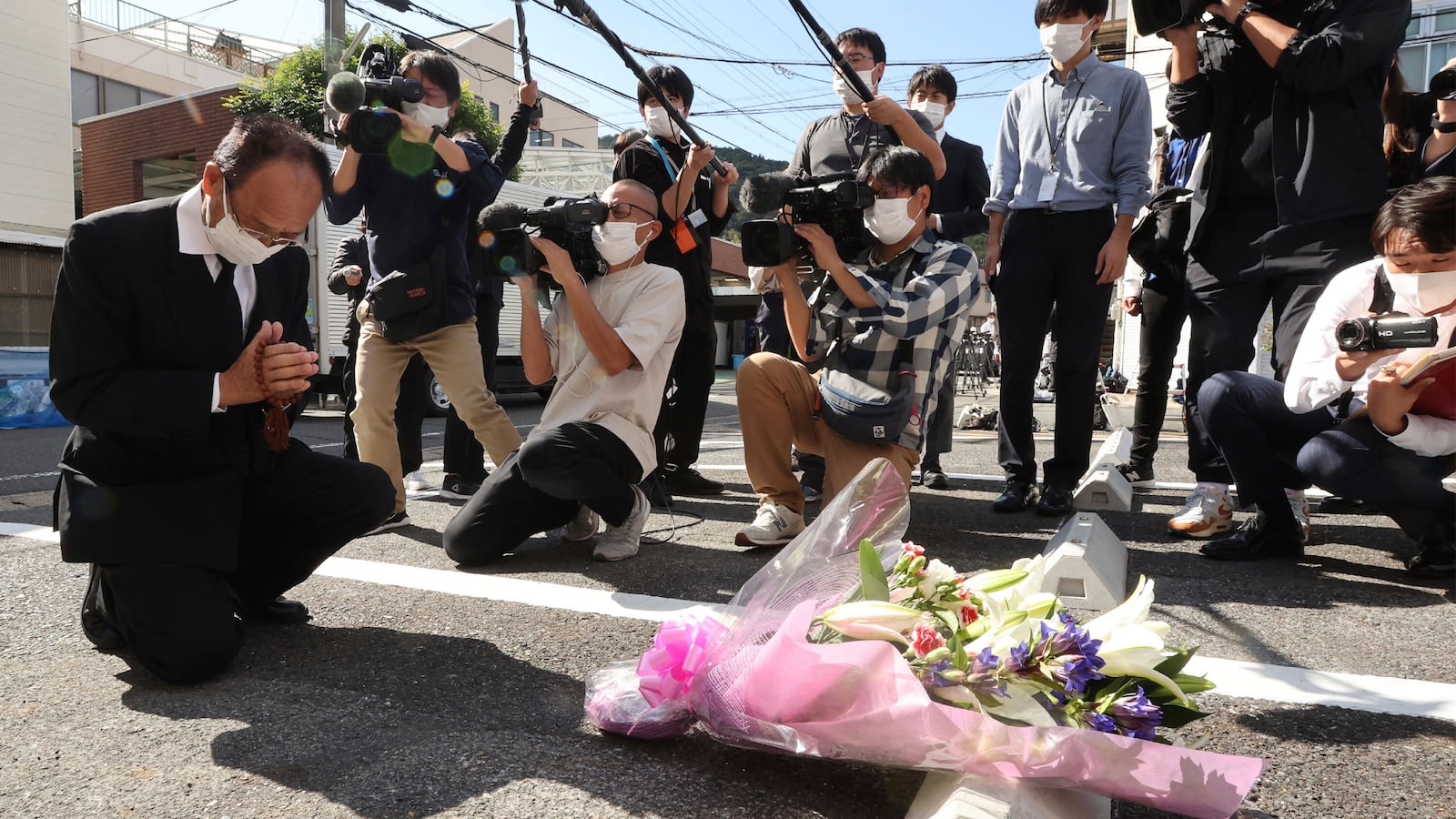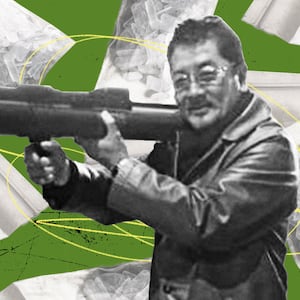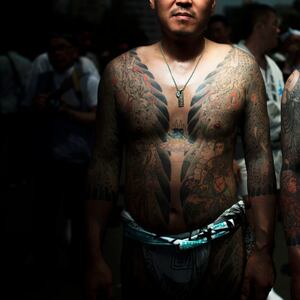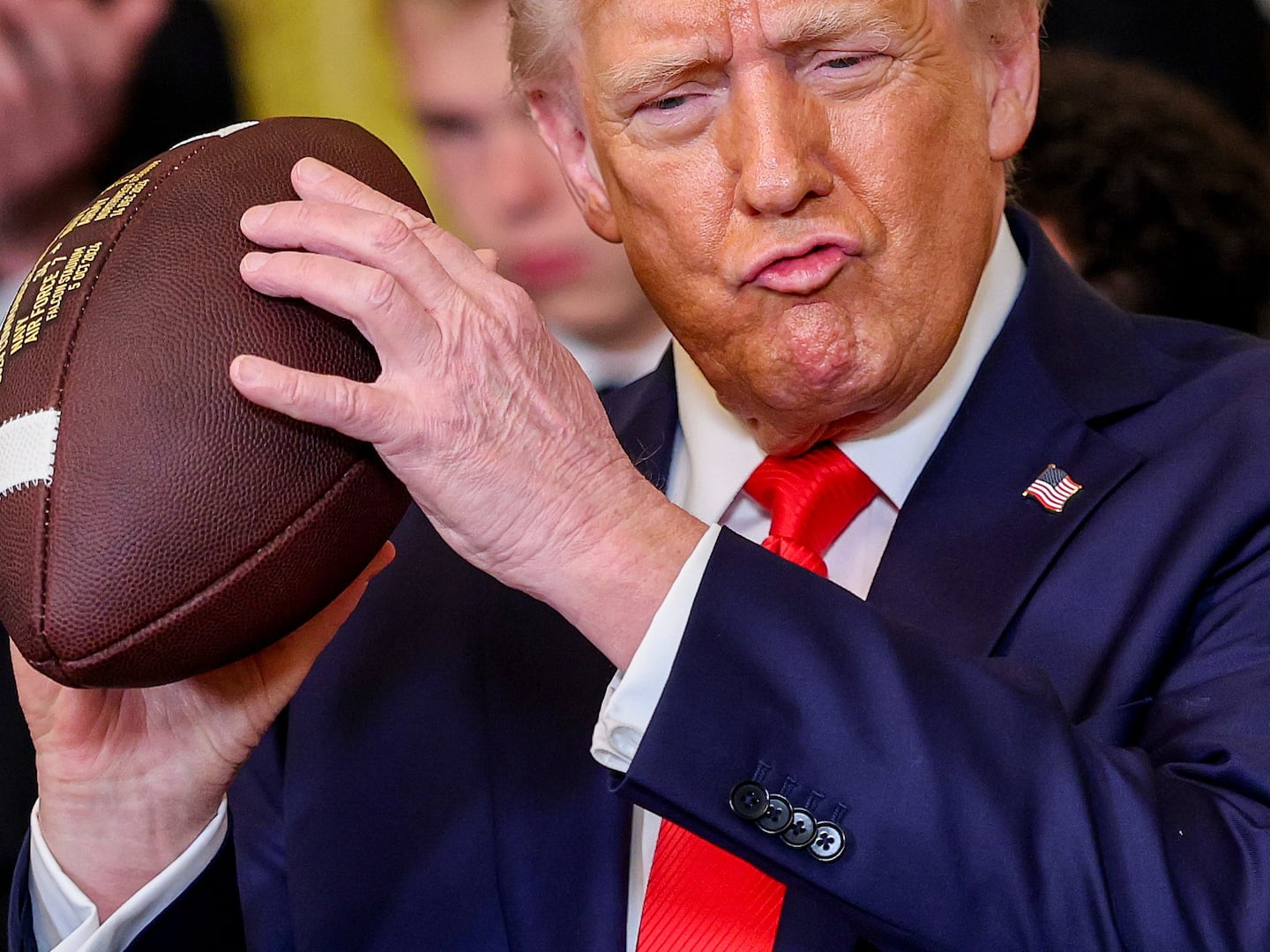In December of 2013, the CEO of Japan’s “Dumpling King“ franchise was brutally gunned down at the company’s headquarters in Kyoto—and now the Kyoto police have finally arrested the yakuza boss they believe was responsible. The question is: Who ordered the killing, why, and does it go all the way to the top of the dreaded Kudo-kai organization?
The suspect, Yukio Tanaka, 56, is a senior member of the Fukuoka-based Kudo-kai syndicate. He was arrested on charges of murder and violations of Japan’s stringent Firearms and Swords Control Law—and is suspected of shooting Takayuki Ohigashi, the then-72-year-old CEO of Japanese restaurant chain Gyoza no Osho or “The Dumpling King.”
The arrest was made Friday at 2 p.m. local time. Tanaka was picked up and taken into custody for Ohigashi’s murder at Fukuoka Prison, where he had already been serving a 10-year prison sentence for an unrelated crime but a similar MO. In 2008, Tanaka shot up a car containing employees of Obayashi Corporation, a major construction company, in Fukuoka City after the firm refused to pay off the Kudo-kai. In the year before his death, Ohigashi had ordered an internal review of whether or not the Gyoza No Osho had any ties to anti-social forces, and ordered a stop to all pay-offs to any and all Yakuza groups. The company’s board of directors was presented with an internal report in November 2013 on transactions involving millions of dollars, which appeared to be paid to organized crime members. A month later, Ohigashi was dead.
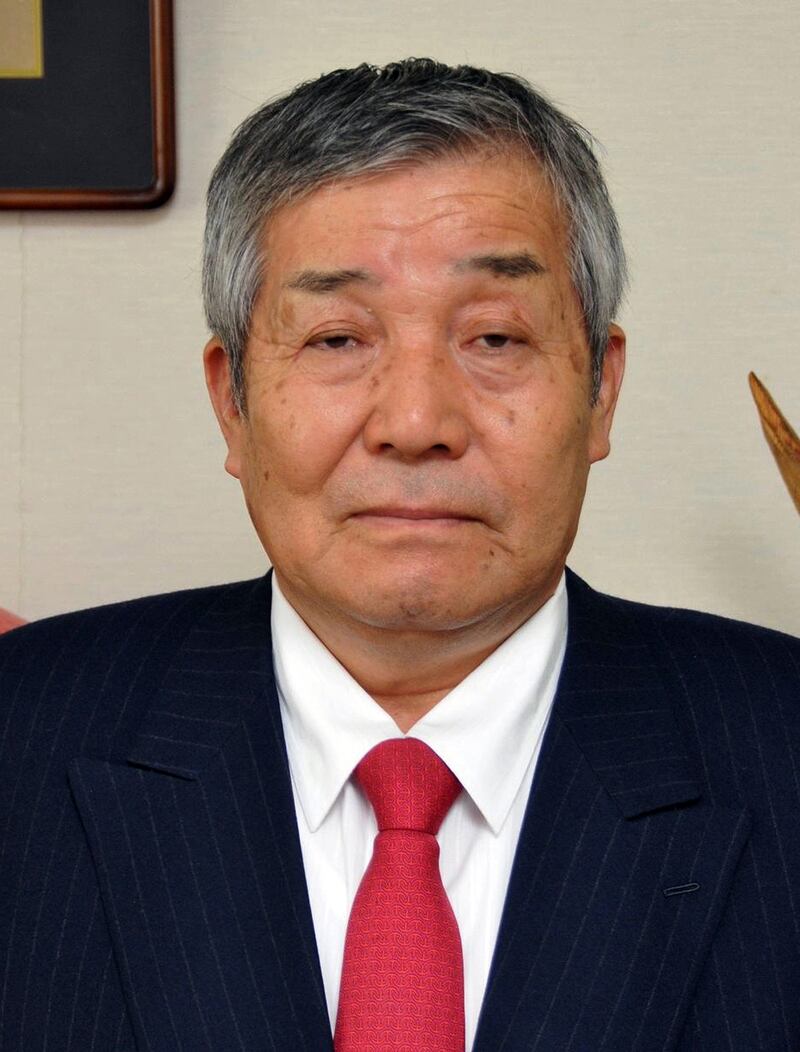
This picture taken on Dec. 14, 2009, shows Takayuki Ohigashi, 72, president of the "Gyoza no Ohsho (King of Dumplings)" chain, who was found bleeding and unconscious in a parking lot in front of the company's HQ in Kyoto, Japan, on Dec. 19, 2013.
Jiji Press/AFP via GettyAccording to the police, his assassination may have been an attempt to prevent the firm from cutting ties with the Kudo-kai, or to cover-up extortion money already paid out to the group. Police sources believe that the orders would have come from the head of the Kudo-kai at the time, Satoru Nomura.
What is known now is that on Dec. 19, 2013, at 5:45 a.m., Ohigashi was shot four times in the chest and stomach in the parking lot of his company’s headquarters in Kyoto’s Yamashina Ward. It was raining that morning and the shooting occurred well before sunrise. Showing up to work at dawn was nothing unusual for Ohigashi. He was known for driving to work early every morning to clean the parking lot himself. Hard working and humble, he was respected by his industry peers and his employees, so much so that for many his name was synonymous with “The Dumpling King” himself.
Gyoza No Osho, while relatively unknown outside of Japan, is one of the most successful fast-food franchises in the country. Gyoza, originally a Chinese dish, are typically dumplings filled with ground meat and vegetables wrapped and fried in thin dough. Ohigashi was appointed the fourth CEO of Gyoza no Osho in 2000 and was so successful in running the company that it became the top Chinese food-chain restaurant in the country. It serves not only gyoza but other savory Chinese foods and of course, cheap beer. By 2007, the chain expanded to 600 locations across Japan. After 13 years of hard work and dedication to growing the firm, the nation was shocked when Ohigashi was shot in the parking lot, dying from massive blood loss. The shooting itself was a rare incident in Japan, which has some of the most stringent gun laws in the world.
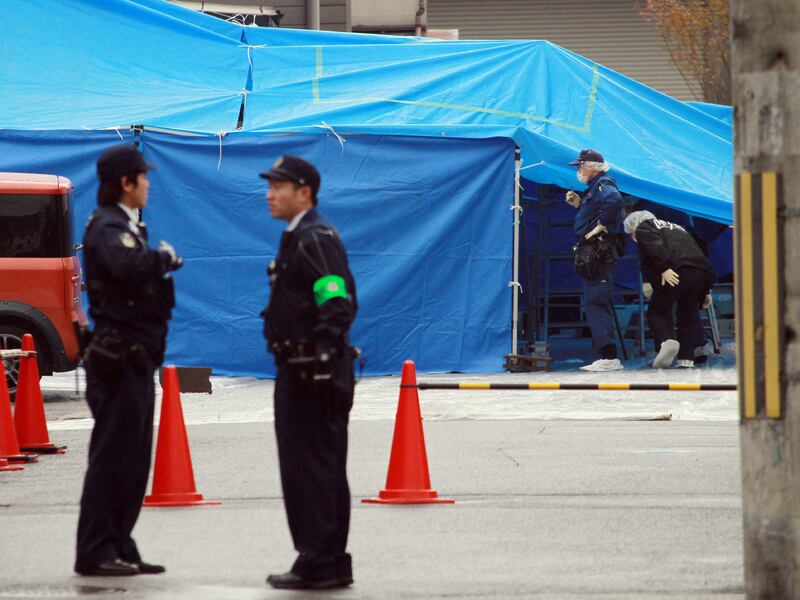
Police officers inspect the murder site of Takayuki Ohigashi in Kyoto, western Japan.
Jiji Press/AFP via GettyGun violence in Japan, a nation of over 122 million people, is extremely rare. It has been a decade since the annual number of fatal shootings went into double figures.
According to officials, Ohigashi was shot with a .25 caliber automatic pistol at close range. Ohigashi’s shooter left behind the cash found inside his car and clothing. This led police to believe that whoever it was that had killed Ohigashi was motivated by a personal grudge, or that the act was carried out as part of a shakedown.
In addition to the cash left at the crime scene, the police had found in an area linked to the crime cigarette butts—of the same brand that Tanaka regularly smoked at the time. Police conducted a DNA analysis and results showed that it was a match with Tanaka, authorities said. However, the police investigation has not yet yielded definitive evidence into the connection between the killing and Tanaka. The Kyoto police have long suspected that Tanaka’s Yakuza syndicate, the Kudo-kai, was involved, which is why they’ve continued to crack down on its members with the help of the Fukuoka police force. They are conducting a full-scale investigation into Tanaka’s motives. At 5 p.m. Friday, Tanaka was transferred to Yamashina Police Station in Kyoto, which is where Ohigashi’s murder occurred nine years ago.
Meet The Ultra-Violent ‘Pineapple’ Lobbing Kudo-Kai
The Kudo-kai, which included Tanaka as a senior ranking member, is the most vicious organized crime group in Japan. The group, located in southern Japan’s Fukuoka Prefecture, was founded in 1946. It has a reputation for extreme violence, even lobbing grenades—called “pineapples” by the Yakuza—at rival gangs and once even into a hostess club that refused to pay protection money. They have also sprayed rat poison in a health club that would not give into their extortion demands—making over a hundred people ill. While most Yakuza groups nominally claim “we don’t bother ordinary citizens” and show a degree of restraint, this doesn’t apply to the Kudo-kai. They have also shown no compunction in attacking police officers, even retired ones.
In Japan, the Yakuza are officially labeled boryokudan (violent groups) and are regulated but not outlawed. They are allowed to have offices and business cards. However, the Kudo-kai is designated “an especially dangerous violent group,” putting it under the most severe regulations allowed by current laws.
Satoru Nomura, 75, the former president of the Kudo-kai, was arrested in 2015 on a number of charges—including the attempted murder of an ex-police officer and the murder of a union worker. A megalomaniacal leader, he is believed to have micromanaged the group’s most flagrant attacks on resisting companies and individual citizens. Last year, Nomura was sentenced to death. At the time the verdict was handed down, Nomura loudly protested, telling the chief judge at the Fukuoka district court, “You’ll regret this for the rest of your life.” He has appealed the case to the Fukuoka upper court. In July this year, he fired his entire defense team which has delayed the opening of the appeals trial.
One of his attempted murder victims was a female nurse who had laughed at him while he was wincing in pain from a penis-enlargement procedure. He had apparently seen an ad for the service in a Yakuza fan magazine. The nurse had taunted him by saying, “Oh c’mon this can’t hurt as much as getting one of those old-fashioned yakuza tattoos.”
The Kudo-kai, which survived after Nomura’s arrest, is still active today but the numbers have been reduced from over 1,000 members at its peak to roughly 470 members. The group’s headquarters, a virtual fortress in Kita-Kyushu City, was finally torn down in February 2022.
A former detective in the Fukuoka Prefectural Police told The Daily Beast, “We long suspected that the Kudo-kai was behind that attack on the CEO, but the motive has never been completely clear. Let’s hope this case is another nail in the coffin of these assholes.”
